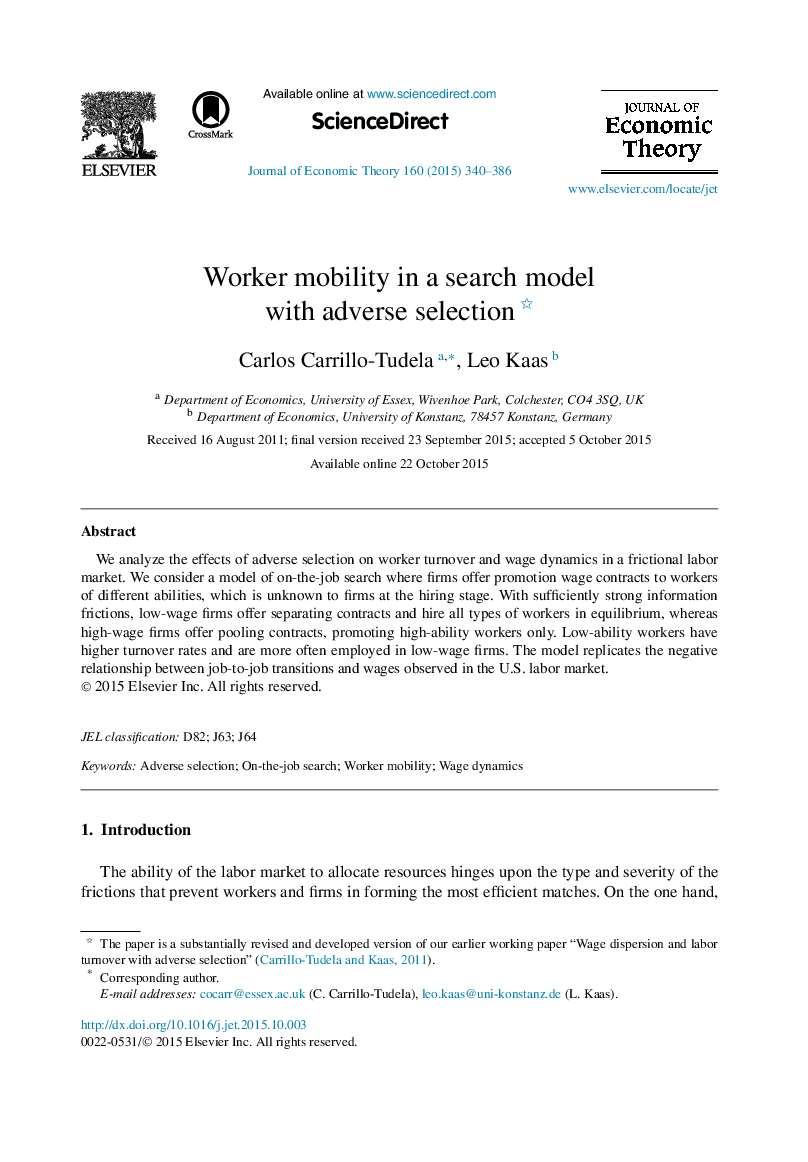| Article ID | Journal | Published Year | Pages | File Type |
|---|---|---|---|---|
| 7359610 | Journal of Economic Theory | 2015 | 47 Pages |
Abstract
We analyze the effects of adverse selection on worker turnover and wage dynamics in a frictional labor market. We consider a model of on-the-job search where firms offer promotion wage contracts to workers of different abilities, which is unknown to firms at the hiring stage. With sufficiently strong information frictions, low-wage firms offer separating contracts and hire all types of workers in equilibrium, whereas high-wage firms offer pooling contracts, promoting high-ability workers only. Low-ability workers have higher turnover rates and are more often employed in low-wage firms. The model replicates the negative relationship between job-to-job transitions and wages observed in the U.S. labor market.
Related Topics
Social Sciences and Humanities
Economics, Econometrics and Finance
Economics and Econometrics
Authors
Carlos Carrillo-Tudela, Leo Kaas,
